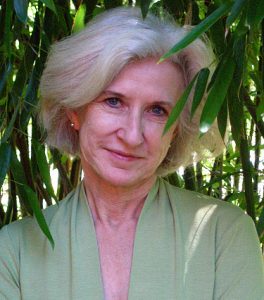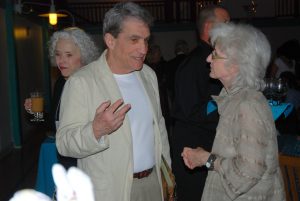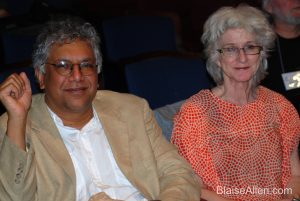
C.D. Wright (1949–2016 ) Arkansan, author of upwards of 20 books, professor for over three decades at Brown University, social activist, publisher, recipient of a Guggenheim, National Book Critics Circle Award, and Griffin Poetry Prize, literary map-maker, MacArthur “Genius,” mother, wife, poet laureate of Rhode Island, finalist for the Pulitzer Prize and National Book Award, Chancellor of the Academy of American Poets, friend, member of the American Academy of Arts and Sciences. These are just a few of the many ways one might describe C.D. Wright. And yet, when one tries to find her among these descriptions, none of them seem capacious enough.
C.D. Wright’s first book, Room Rented by a Single Woman was published by Lost Roads Press in Arkansas in 1977. In 1978, C.D. took on the role of Lost Roads’ editor, a position she would hold for thirty years. After completing her studies in Arkansas, she lived in New York and San Francisco, where she met the poet Forrest Gander. They moved to Mexico, then Arkansas where they married. The two then lived together in Providence, RI, where they raised a child, Brecht Wright Gander, and C.D. served as Israel J. Kapstein Professor of Literary Arts at Brown University for thirty-three years, helping countless young writers find their way into the world.

During those years in Rhode Island, C.D. wrote some of the most luminous and least predictable books American poetry has known. From the Southern-lyric poems of her early collections, such as Translation of the Gospel Back into Tongues and String Light, to her documentary collaboration with photographer Deborah Luster focused on the lives of Louisiana prisoners, One Big Self; from the rapturous long poem, Deepstep Come Shining, to the micro-essayistic works of The Poet, the Lion, Talking Pictures, El Farolito, A Wedding in St. Roch, The Big Box Store, The Warp in the Mirror, Spring, Midnights, Fire & All, C.D.’s work never repeated itself, but surprised its readers, swerving always toward new terrains of learning, evolving, and fidelity to the word. As her work makes clear from its start, for CD, ethics was a condition of being.
Over her lifetime, C.D. Wright’s works were published by leading presses and journals, such as Copper Canyon Press, Ecco, The New Yorker, Poetry Magazine, and The Nation, but also by innumerable independent, poet-run publishing projects that may well have been just starting out. She was democratic that way as in all things. Her readings and works were featured on NPR, PBS, and Poets.org, but also in the living rooms of fellow writers and friends. She received the nations greatest honors in art and literature, but she devoted Lost Roads to the discovery of new, often unpublished voices. Her engagement with writing was immediate and unpretentious, and based in the deeply-felt sense of generosity that permeates her books.

Poetry itself, for C.D., was that which liberates us by dodging categorization. “It may be that because poetry is the most difficult to pin to the wall,” she said, “it has a chance of a future.” And perhaps this is why C.D. Wright is so delightfully hard to pin to the wall, because she, like poetry, lived freely and variously and fully engaged with others and the world. As C.D. wrote, “It is a function of poetry to locate those zones inside us that would be free, and declare them so.” And declare them so she did, shining.
At the 7th Annual Palm Beach Poetry Festival in January 2011, C.D. Wright taught her workshop, Writing At The Edges Of Things: Being fierce, strange, calamitous, glowing, erroneous, blameless, side-splitting, starless, right-brained, formidable and unsure – now is the time to find the language compatible with your own condition. Whether one is writing to make amends, to get even, to fill the void, to impress the father, or just to pay off a few parking tickets… there are words for those motives and there is a shape for those words. As W.S. Merwin put it, “Never fear there is a hair hanging by everything it is the edges of things.” Bring new writing every day. Bring nothing you have written in advance of arriving. Writing will be done in and out of the workshop setting.
